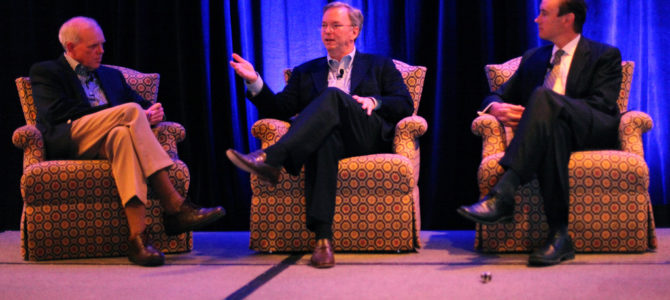
Read part two of this series here, and part one here.
Is the pink police state inevitable? To answer that question, we might begin with a smaller one. Why has this new regime arisen? More specifically, why hasn’t the development of the political and economic compact within what Marxists call “late capitalism” stuck to one of the several well-thought-out scripts written by many not-so-Marxist analysts and theorists?
A Marxist would likely reply that the answer is simple: because Karl Marx was right! To be sure, Marxists have outdone their capitalist contemporaries in imaginative structural analysis. But as with the few non-Marxists who do practice systems theory, the faulty conceptual cornerstone of the Marxist creed is that the collapse of our regime is really going to happen this time.
As Nouriel Roubini put it four years ago, “Karl Marx had it right. At some point capitalism can self-destroy itself because you cannot keep on shifting income from labour to capital without not having excess capacity and a lack of aggregate demand, and that’s what’s happening.”
Likely To Happen Versus Must Happen
Our most prominent systems theorists often tirelessly insist that regime collapse is not just inevitable but imminent.
It is important to see how these are two different arguments. Marx did not argue that our regime “can” destroy itself, but that it must. These ideas are readily conflated today because the rise of an apparent Age of Terror has infused fear into our oscillations between the official and unofficial spheres of life.
In a democratic age, Alexis de Tocqueville explained, the dominant variety of individual and social motion is “restlessness,” which we should not hesitate to translate, in the parlance of our times, as craziness. “Among democratic nations,” he wrote, “men easily attain a certain equality of condition, but they can never attain as much as they desire. It perpetually retires from before them, yet without hiding itself from their sight, and in retiring draws them on. At every moment they think they are about to grasp it; it escapes at every moment from their hold. They are near enough to see its charms, but too far off to enjoy them; and before they have fully tasted the delights, they die.”
This struggle drives us crazy—into that half-mad world where we are neither officially insane nor unofficially sane. In America, Tocqueville continues, “suicide is rare, but insanity is said to be more common there than anywhere else. These are all different symptoms of the same disease […]. The will resists, but reason frequently gives way.”
We are all Bridget Joneses now, perpetually moving past the Edge of Reason. It is no surprise that this reference should come in so handy to us right this moment. After all, Bridget Jones: The Edge of Reason was first published in 1999, and from 1998 to 1999, the pink police state was born.
Our Bipolar Selves and Government
Before we wind back the clock to the dawn of the pink police state, however, consider for a bit longer the matter of motion and collapse. We are now stuck living in a bipolar regime, where an officially healthy and safe realm coexists in a codependent coupling with an unofficial realm where fertility, filth, contamination, and danger all commingle.[1] The consequence of living in these two adjacent realms of insatiable but merely overlapping appetites is the acceleration of all things as we shuttle between them. The more kinetically we move, the more our fears acquire potential. The faster we are, the faster it becomes.
As President Obama put it, harshly, anxiously, in a State of the Union address: “America doesn’t stand still!”
As the urban theorist Paul Virilio has argued, speed, progress, and fear blur together. According to Virilio, who came of age in occupied France, our “cult of speed,” our “propaganda of progress,” and our “administration of fear” all began with the Bomb. A political singularity, he claims, was opened up by the Manhattan Project—for the first time, it became thinkable to literally destroy the world in an instant.
For Virilio there is also an informational singularity afoot. “It creates a ‘community of emotions,’” he argues, “a communism of affects coming after the communism of the ‘community of interests’ shared by different social classes.” Here, Virilio warns, the “synchronization of emotion” actually “surpasses the power of standardization of opinion that was typical of the mass media in the second half of the 20th century.” Once we had “a democracy of opinion;” now, we’re stuck with “a democracy of emotion.”
Virilio fits the model of unofficial dissidence in the pink police state. He says his task “is to focus on the fear that is hidden by the ideology of progress” in what we are calling the official realm. But even though he uses his own unique concepts, he helps us restore the blurred line between the inevitable and the imminent. Without the right kind of political economy, he claims, “we will fall into globalitarianism, the ‘totalitarianism of totalitarianism.’” That seems to bring us back to Leo Strauss’s fear that philosophy will become impossible in the realm of officialdom. It seems to fit right into the pattern of systems theorists, conflating what must happen with what could happen.
When Time Completes Itself
But there is a catch. Virilio is a Christian, for whom propagandizing and proselytizing are inherently different kinds of activity. To understand how they differ, consider how time is thought of differently when thinking of what must happen versus what could—even at any moment—happen.
The secular idea of an inevitable collapse is conceptually distinct from the religious idea of the end-times. In the realm of faith, there is no way to predict the speed of events that are significant to the soul—including the “final” event, the spiritual singularity. In realms of fate, fact, or fiction, the ability to sense the speed of events becomes of paramount secular importance. How long until the missile hits? How long can you stay erect? As Thomas Pynchon made clear in Gravity’s Rainbow, these questions are two of a kind for some very deep reasons. In a secular age, plumbing their depths readily becomes an obsession, both in official and unofficial life.
For faith-based dissidents in the unofficial realm, the whole secular concept of time must be rejected. Take, for instance, Jesus’s saying in Mark 1:15. “The time is fulfilled, and the kingdom of God is at hand.” In propagandists’ terms, this means that an important event is imminent. In proselytizers’ terms, however, it means that an important condition has always already been the case.
This distinction is crucial. We are tempted to collapse it because we humans are biologically disposed to think of our lives as lists of “life events.” Consider the experience of converting to a religion. From an egotistical, biological standpoint, the conversion is an event, something that happens to the self. From a cosmic or super-natural standpoint, however, the character of the event is less important than the context that defines it. In Christianity, for instance, it is always the case that Christ’s sacrifice had already made God’s grace accessible to us.
You don’t have to be religious to understand how naturally reluctant we humans are to accept the “always already” at the expense of our sense of “eventhood.” The idea was important for Marx himself, whose vision of all individuals as always already social helped launch the whole postmodernist inquiry into the construction of reality through language.
Nevertheless, Marxists who take religion more seriously stand a better chance of realizing just how different claims of imminence and inevitability really are. It is one thing to say the collapse of capitalism is around the historical corner. It is another to say the end of history will arrive only in the fullness of time.
Marxists and Secularists Are Confused
Marxism has typically been torn between these two statements, and has typically erred on the side of trying to hasten the collapse of capitalism. Alas, History keeps disappointing the Marxists, and the Marxists keep blaming Capital, with its ever-more-quickly evolving wiles.
In a secular age, the supposedly inevitable tends quickly to become the imminent. That confusion has tended to influence Marxist as much as non-Marxist systems theory.
Ironically, Marxists would love to claim responsibility for the events at the dawn of the pink police state. Unfortunately for them, however, the pink police state can be understood historically as the regime that arose to effectively postpone political revolution indefinitely—although not permanently.
To find that moment in historical time, we must go back to the fateful years of 1998 and 1999, the brief era when the pink police first made their appearance on MTV.
The Battle of Seattle
Consider again the late ‘90s world of Marilyn Manson’s “Mechanical Animals.” Just about a year after its release in September 1998, anti-globalization protestors clashed with riot police in what was then considered a definitive expression of society’s new grand divide. At the opening Ministerial Conference of what was meant to be the “Millennial Round” of World Trade Organization negotiations, our progress toward what Francis Fukuyama called “the end of history” was forcibly interrupted by the so-called Battle of Seattle.
This interruption did not just occur in real life. Even more importantly, it arrested the elites who had conceived of the dominant idea of progress and were busily working to execute it.
A media sensation, the unrest seemed to confirm that the progress of Western democracy toward the post-communist political economy was threatened by a new, domestic adversary—one quite unlike the external foe whose defeat had brought a sudden end to the Cold War.
To be sure, some enemies remained abroad. In a handful of “rogue” or “failed” states, Western strategists faced a growing assortment of what Hans Magnus Enzensberger would later term “radical losers”—terrorists, guerillas, and criminals acting beyond the reach or the view of sovereign powers. In certain troubling instances, these problem actors worked together, or even converged.
But from North Korea to Afghanistan, these perils appeared mainly to be remainders and aftereffects of the Cold War. No new vision had seized power in a way that challenged the primacy of the West. No one really worried, as Western elites worried about Stalinism during the 1930s, that the narcoterrorists and strongmen of the 1990s offered a serious alternative to capitalist liberal democracy—much less one which the logic of history seemed to anoint over a declining and divided West.
Now, history had declared for democracy. In the triumphant years at the close of the 20th century, the opponents of the Western powers did not, and could not, amount to actual rivals. They were “throwbacks,” “dead-enders”—primitives. Rather than a source of anxiety, these figures were problems to be solved by elite Western experts, or, at worst, managed until a solution became feasible. A sense of panic did not surround these bureaucratic processes because our atavistic opponents had literally been left behind by the speed of events.
The one possible exception to this geopolitical rule was China. But here, any geopolitical anxiety was carefully ironed out, in a grand bargain that entailed “constructive engagement” on the part of the West and a “peaceful rise” on the part of China. In finance and economics, globalization would bring East and West closer than ever before; politically, nothing much within either “hemisphere” would change. The Chinese would bend the market to autocracy. The Western powers would use the market to spread democracy quickly and cheaply enough to justify a policy of nonconfrontation. After all, the durability of Chinese autocracy itself reassuringly augured a parallel democratic quietude in unipolar America and the new, larger Europe. There was something reassuring in the idea that any regime type could supply a surface for progress to hover swiftly above—and something tremendously rousing in the notion that progress could now rove unimpeded across any political surface.
Still Alienated by Capitalism
Or so it seemed, until the Battle in Seattle—which struck at the very core of the vision of post-Cold War American development. Long before neoconservative critics of neoliberal bliss ironically declared a “holiday from history,” radical theorists of the Left, like Michael Hardt and Antonio Negri, began to insist that the liberal democracies could never incorporate all of humanity into a single political economy because of the West’s own contradictions. The mere failure of Marxists’ positive agenda, they claimed, didn’t drain Marx’s critique of the West of its force. According to the radicals, democratic capitalism produced stable, profitable regimes by plowing their externalities inward, toward the “imperial” core, and not just outward, into the (post)colonial periphery. No amount of goodwill toward the global South could successfully repress the consciousness of the capitalist masses at home that they toiled in alienation from nature, community, and self. The radical truth was we were all losers.
Bourgeois hedonism, the radical anti-capitalists avowed, was not just too small a prize for our bloodless corporate labors. It was too sterile, too fruitless—as Heather Havrilesky is now making explicit in her anti-capitalist critique of “Fifty Shades of Grey.” Our pornographic magazines once “effectively equated the moment of erotic indulgence with the ultimate consumer release, a totem of the final elevation into amoral privilege;” now, she writes, “James’s trilogy represents the latest installment in the commodified sex genre. The money shot is just that: the moment when our heroine realizes she’s been ushered into the hallowed realm of the 1 percent, once and for all.”
Then as now, the capitalist masses may not have translated their malaise and neurosis into revolutionary action, but in 1999, the antiglobalist vanguard chose street combat over fantasy entertainment. Intriguingly, in 1999 the Internet had become mainstream, but Internet porn had not.
The ‘Fight Club’ Critique
It is now a cliché to quote the rousing speech from “Fight Club,” where the alienated losers are told to be “very, very pissed off” because “we’re slowly learning” that “we won’t” become “millionaires, and movie gods, and rock stars.” In 1999, however, those words had a vitality that our old boxes of college DVDs do not.
Indeed, Tyler Durden, the alter ego of the socioeconomically oppressed white corporate drone played by Edward Norton, took his animating vision out of the basement fight clubs and, at the story’s climax, onto the streets—literally blowing up the high-rises that housed the big banks, and blowing up with them Americans’ debt. “Out of these windows,” he says, “we will view the collapse of financial history. One step closer to economic equilibrium.”
On one interpretation, “Fight Club” is not much more than a well-timed allegory about gay identity and moral nihilism. It is telling, however, that the movie adaptation turned the rather misogynist book into something more like a love story. In the film, revolutionary political action is the means by which Edward Norton and Helena Bonham Carter escape the realm of officialdom, with its cubicles and its therapy groups where the terminally ill came to cope. The “Fight Club” phenomenon, that is to say, captured a social situation that, in 1999, felt broadly real—to elites, would-be revolutionaries, and the rising generations caught in the middle.
That situation was defined by the shocking irruption of a forward-looking revolutionary attitude. That shock, and not the atavistic attacks of 9/11, truly captured the “existential threat” to the trajectory of Western regimes in history. Durden summed up the problem in another speech memorized by many a proto-millennial male:
I see all this potential, and I see squandering. God damn it, an entire generation pumping gas, waiting tables; slaves with white collars. Advertising has us chasing cars and clothes, working jobs we hate so we can buy shit we don’t need. We’re the middle children of history, man. No purpose or place. We have no Great War, no Great Depression. Our Great War is a spiritual war. Our Great Depression is our lives.
Durden gave voice to the anti-globalist dream—ultimately, humanity’s shared dream—of profoundly social yet personal lives of real, and not virtual, worth. It is a dream, as today’s hipsters reveal, that is not foremost about money. On the one hand, today’s hipsters are often downwardly mobile by choice; on the other, they are known to tote around top-of-the-line laptops—sometimes bearing a sticker that could have been slapped on the side of Little Boy: “This Machine Kills Fascists.”
Chaining The Beast Within
Instead, the dream is about fruitful, regenerative human life—in all its messy, contingent, and unregimented glory and possibility. But in the pink police state, where the unofficial realm is often too beastly and fugitive to ground such a life, that dream becomes a fantasy that is hard to envision and even harder to articulate.
In the spirit of ’99, however, valorized by the likes of Hardt and Negri, the youthful dreamers were not just scrappy romantics. They were, of necessity, anti-capitalists. They were throwing the protean and adaptive strategies of parasitic survival back in the face of the unfeeling machine that had perfected those strategies. Leading a new, popular counter-West, the street-fighting dreamers would take back humanity—because they would take down the machine they raged against. (Yes, “The Battle of Los Angeles” was recorded in 1998 and released in 1999.)
As is often the case with popular movements, some adherents are there because of what they are for, others because of what they are against. From the standpoint of American elites, however, there was no time to sort out proto-hipsters from fight clubbers from anti-capitalists. For American elites, the spirit of ’99 was grounds for a level of geopolitical anxiety on par with the Cold War—one that “fundamentalist Islam” and “radical jihad” inherently could not, and so would not, attain.
Taking the fear past the edge of reason, Bret Easton Ellis followed up “American Psycho” with the ultimate geopolitical taboo. In “Glamorama,” published just days before New Year’s Eve 1999, a male model in his late twenties—who just happens to be the son of a powerful senator—slides “down the surface of things” into a nightmare world where the most beautiful and wealthy libertines on earth are also the planet’s most soulless and lethal terrorists.
Ellis revealed what the anti-capitalist view of “Fifty Shades of Grey” conceals: it’s not all about money. It’s about what Nietzsche called “the beast”—the monster that lurks within the human, always longing to get out.[2]
It’s Too Messy and Hard to Govern Ourselves
Adding to our elites’ new anxiety was how it seemed to fulfill, in a surprise way, the warnings and premonitions of a seemingly bygone era. According to the anti-globalization radicals, the neoliberal project to create world peace by institutionalizing economic interdependence was a failure. That critique strongly echoed the typical cautionary tales of 19th-century political theorists, who were gravely concerned about the internal logic of democratic times. Note that the mechanism of decay they identified was not shaped by a belief that economics is the master science. Rather than seeing capitalism as the foundational problem, they saw the monetization of all things as simply one manifestation of the rising democratic age. And rather than seeing democratization as a primarily political process, marked by the steady expansion of rights and regulations, they saw it as an anthropological one, marked by the increased equalization or interchangeability of all persons. Whether liberal or anti-liberal, whether friendly or unfriendly critics of democracy, theorists like Nietzsche and Tocqueville warned of a dystopia wherein whole peoples abandoned their drive, dynamism, freedom, and pride, in favor of an “oriental” despotism that ensured their health, safety, efficiency—and servility.
Subsequently, 20th-century conservative critics of the rise of progressivism in turn-of-the-century liberal democracy traced back to canonical figures like Bacon, Descartes, Hobbes, Locke, and Mill a powerful philosophical technophilia—one that promised relief from the pressures and dilemmas of democratic life by infusing the very notion of politics with scientific values and objectives. For elites and common folk alike, the progressive ideology of crafting public policy through regulatory bureaucracy offered a way out of confronting the “hard choices” that always and already arise among neighbors meeting face to face to share in self-government. In the terms of the pink police state, the work of republican democracy is awkward, clumsy, messy, risky, perhaps even dangerous. The expert application of science to governance, by contrast, is routine, scripted, predictable, and safe. The pathologies of political freedom are cleansed; democracy is made safe for the world.
But a More Comfortable Technocratic Rule Subjugates Citizens
According to 20th-century critics of progressivism, Right and Left, the alleged capture of our political and economic institutions by scientism was a landmark event. The rule of experts, they said, had not saved us. Instead, it produced a massive and unaccountable administrative apparatus, turning citizens into subjects and replacing real life with a simulacrum. Radical leftists began attacking neoliberalism on this basis; reactionary conservatives, neoconservatism.
Monetizing these fears was “The Matrix”—joining “Fight Club” at the box office in 1999. In that film, Joe Pantoliano’s traitorous Cypher tells Keanu Reeves’ Neo that he’s content to eat tender pink steak even though it “doesn’t exist,” with only the Matrix “telling my brain that it is juicy and delicious.”
Technocracy, the critics concluded, perversely uses our fear of death to inspire us to surrender our love of life. Under the vast soft despotism marking history’s end, we and our posterity will mark out insignificant, ignoble, perhaps even undignified lives. The fears of Tocqueville and Nietzsche will be realized; fat, numb, and happy, the technocratic rule of the expert few will reign over the dull functionaries below.
But as some of America’s harshest conservative critics have admitted, this is not exactly what has happened. Drawing from Philip Rieff, Alasdair MacIntyre and Christopher Lasch confirmed that technocracy marches hand in hand with emotivism: our therapeutic culture of feelings, sensitivity, compassion, sincerity, and self-esteem. Recalling to mind today’s Human Resources departments—possessed of an omnipresence Foucault would envy—MacIntyre and Lasch suggest that our big-brained technocrats have learned how to hardwire our big-hearted emotivists deep into the administrative apparatus. Government isn’t exactly like Nurse Ratched after all. Instead of seeing itself as a coldly militant enforcer, it loves to play the indispensible helper, as heroic and bold as it is warm and fuzzy.
Technocracy Can’t Tame the Human Soul
Rieff dreaded a therapeutic democracy in which all become one another’s “crippled pets.” Perhaps. But the real power of Rieff’s sociology of the therapeutic, too absent on the MacIntyrean right and the Laschean left, is in its recognition that emotion is fundamentally erotic, and eros is fundamentally resistant to domestication. In our erotic human nature there is always to be found the beast.
From this view, which Nietzsche sometimes shares, any human content to eat tender pink steak that does not really exist must not, in any sense truly real for us, exist. In the name of health and security, we are willing to compromise across a range of erotic fronts—but only so long as the transgressive possibilities of erotic life are kept open along other fronts. The human longing for the reality of eros and its transgressions cannot be fully sublimated, repressed, or domesticated—not even by the most expert and comprehensive technocratic techniques. One way or another, the beast will out.
If this is true, many of our current concerns about technocratic democracy need to be radically revised. The classical liberal and contemporary conservative fear that the state will accomplish the final domestication of eros is as misinformed as the radical hope that the West’s internal divisions doom it to contradiction and destruction. The reality that commands our attention is that democratic life is making us more gentle and more beastly at the same time—more like servants and more like masters in a sense far more robust than even Rieff implied. Neither soft despotism nor system collapse is our fate. There is no fate.
From this standpoint, the why of the pink police state finds an answer. Historically, its rise can be seen as a so-far successful attempt to use the kinetic energy of spreading, deepening equality to therapeutically resolve the geopolitical anxiety of the elite on the one hand and the deep disenchantment of the people on the other. It is the rise of a somewhat forcibly negotiated settlement between the imperatives of the contending forces whose war was announced at the Battle of Seattle—the elite technocratic order and its popular erotocratic opposition.
But is it inevitable? Is there a way out of the Matrix? As Neo came to understand, to truly answer that question, we must now look within our own souls—mirror that they are for the regime in which we live.
[1] That which is now knowable only in unofficial life was once, remarkably, thrust into the faces of millions as a consequence of the mass personal experience with war. In Fear, Gabriel Chevallier’s lost classic of World War I, French troops on trench detail stumble upon an arresting truth. “The pick had hit a damp, rotten stomach, which released its miasma right into our faces, a sudden burst of foul vapor. […] The decomposing body’s disgusting gasses spread out, filled the darkness and our lungs, reigned over the silence. The NCOs had to force us back to this angry corpse, and then we shoveled furiously, desperate to cover it up and calm it down. But our bodies had caught the awful fecund smell of putrefaction, which is life and death, and for a long time that smell irritated our mucous membranes, stimulated the secretions of our glands, aroused in us some secret organic attraction of matter for matter, even when it is corrupt and almost extinguished” [emphasis added].
[2] See The Genealogy of Morals, Second Essay, Section 22.









